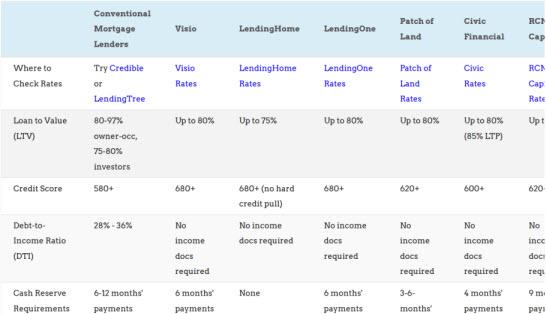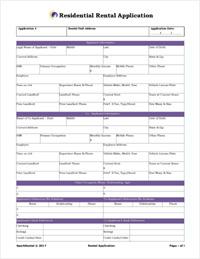At a Glance
-
-
Real estate provides diversification and stability – Unlike stocks, real estate often holds steady during market corrections, offering consistent rental income and long-term appreciation.
-
-
-
Resilience across risks – Real estate can withstand geopolitical shocks, recessions, and inflation better than equities, though stagflation remains a major challenge for both asset classes.
-
-
- Diversification is essential – A balanced portfolio of both stocks and real estate helps investors hedge against downturns, ensuring no single market event wipes out returns.
Investors put their money into real estate for many reasons: cash flow, tax benefits, appreciation, and more. But one of the most underrated reasons is diversification. By investing in noncorrelated assets, you protect your portfolio from total collapse if one sector tanks.
When stocks fall, your other investments like real estate can keep you afloat. And right now, with the stock market looking historically overpriced, it’s worth exploring how real estate can hedge against a potential correction.
Disclaimer
The information provided on this website is for general informational purposes only and should not be construed as legal, financial, or investment advice.
Always consult a licensed real estate consultant and/or financial advisor about your investment decisions.
Real estate investing involves risks; past performance does not indicate future results. We make no representations or warranties about the accuracy or reliability of the information provided.
Our articles may have affiliate links. If you click on an affiliate link, the affiliate may compensate our website at no cost to you. You can view our Privacy Policy here for more information.

Why the Stock Market Feels Overpriced
As of mid-July, key market indicators are flashing warning signs:
-
- Price-to-earnings ratio for the S&P 500: ~29 (historically high)
-
- Buffett Indicator (total U.S. stock market value ÷ GDP): over 200% (healthy range is ~100–140%)
While overpriced markets can sometimes climb higher before correcting, valuations this stretched often invite pullbacks. The question is: how does real estate hold up if that happens?
Real Estate as a Hedge Against Stock Market Risks
1. Garden Variety Stock Market Corrections
When stocks drop because prices outpace fundamentals without a recession real estate often keeps running smoothly. Rental income, property values, and tenant demand remain stable, making it an excellent hedge.
2. Geopolitical Risk
From trade wars to international conflicts, geopolitical shocks can rattle stocks especially companies dependent on global supply chains.
-
- Impact on stocks: Supply chain disruptions, tariff costs, market panic
-
- Impact on U.S. real estate: Minimal unless the situation spirals into a major recession
Real estate, especially local residential property, is largely insulated from these events.
3. Recessions
Recession risk for real estate investors breaks down into two areas:
Loss of Income
-
- Higher unemployment can lead to missed rent payments, higher vacancies, and tenant turnover.
-
- Residential landlords face moderate income risk, but certain property types (industrial, self-storage, mobile home parks) tend to hold up better.
Price Declines
-
- History shows single-family home prices did not fall in 4 of the last 6 recessions.
-
- Commercial property is more varied office space struggles, but industrial and self-storage often perform well.
-
- Lower interest rates during recessions can actually boost property values by lowering cap rates.
4. Inflation Risk
Inflation has a mixed impact on real estate:
Upside for Investors:
-
- Fixed mortgage payments stay the same while rents rise.
-
- Inflation pushes property values higher in nominal terms.
Downside:
-
- The Fed may raise interest rates sharply (as in 2022), which hurts valuations especially in commercial properties with variable-rate debt.
5. Stagflation – The Worst Case
Stagflation combines high inflation with economic stagnation or recession. It puts the Fed in a no-win situation:
-
- Raise rates to fight inflation → worsens recession.
-
- Cut rates to stimulate growth → fuels inflation.
Stagflation is bad for both stocks and real estate, making it the scenario all investors want to avoid.
Lessons from Recent History
-
- COVID-19 Crash (2020): Stocks plunged, then rebounded quickly. Residential real estate soared in value, except for office space.
Diversification Saved Portfolios: Investors with a balanced mix of stocks and real estate weathered the storm far better than those heavily concentrated in one asset class.
(article continues below)
Final Takeaway – Diversification is Non-Negotiable
Neither the stock market nor real estate is foolproof. The smartest move is to hold both:
-
- If stocks crash, real estate can keep you afloat.
-
- If real estate faces a slump, stocks can carry your portfolio.
The goal isn’t to avoid all risk it’s to make sure that no single market event can wipe you out.
Want to explore passive real estate investing?
Join our Co-Investing Club, where we vet opportunities as a group and invest together. Check out our free course on how syndications and real estate funds work at sparkle.com/free.
Sources
https://www.currentmarketvaluation.com/models/buffett-indicator.php
https://www.nar.realtor/research-and-statistics
https://www.investopedia.com/articles/mortgages-real-estate/08/inflation-and-real-estate.asp

























